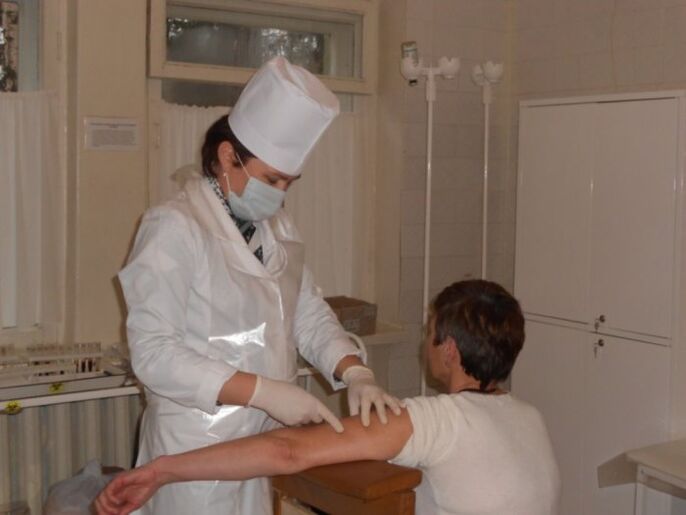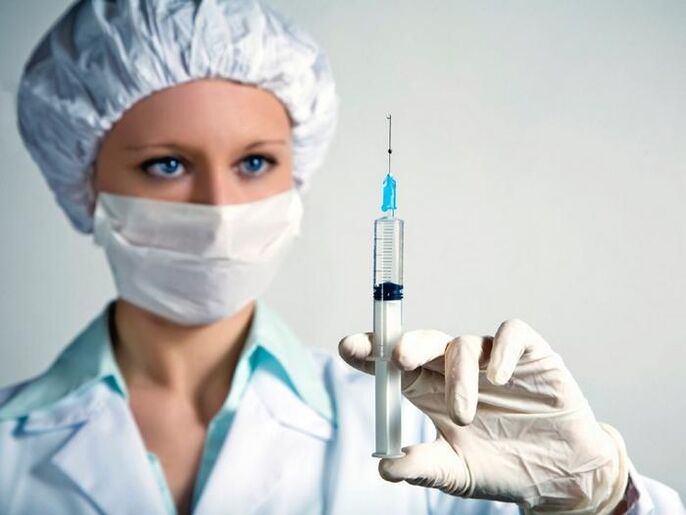Mass vaccination of the population against various diseases is approved by the Ministry of Health. At the same time, if earlier the vaccination cycle and their medical range were three to five names, today the population is offered vaccination against other diseases such as influenza, papillomavirus, etc. Naturally, in this case, not only children, but also adults are vaccinated. This raises the question of whether you can drink after vaccination, and if prohibited, then why.
Important: every adult should understand that alcohol and vaccination are absolutely incompatible concepts. The interaction of the administered drugs and ethanol molecules can lead to the most unexpected results, up to and including death.
Vaccination: definition

Vaccination (vaccination) is the process of injecting microscopically small doses of the causative agent of a specific disease into the human body. In such doses, the vaccine is not capable of causing the disease in its full manifestation, but it very actively spurs immunity, forcing it to resist the introduced pathogens. Thus, the body's immune cells memorize a harmful and potential substance, producing antibodies in non-antibodies for life or for a certain period.
Important: the most important condition for vaccination is the absolutely healthy condition of the patient. Only in this case the human body will react to the vaccination correctly (predictably from the point of view of medicine). If a person's immunity is weakened by a disease or other external factors, a failure will occur in the immune system and the introduced pathogens will lead to the activation of the disease from which the patient was vaccinated.
That is why for those who want to know if it is possible to drink alcohol after vaccination, there is an unequivocal answer - No! Alcohol (beer, vodka and many other drinks) is a poisonous and weakening factor in the body.
Modern vaccination: types and purpose of vaccinations

To date, there is a list of vaccines that are intended for mandatory or voluntary vaccination. So, the following are distinguished:
- Chickenpox (chickenpox). It is noted that this type of disease is easier and easier to tolerate by children in preschool / primary school age. With the transfer of this type of disease, lifelong immunity is developed. However, if a person did not have chickenpox in childhood, then in an adult state the disease has a severe toxic effect on the body, affecting the central nervous system. That is why an adult who has not had smallpox should definitely get vaccinated. Especially women.
- Rubella, measles and mumps. This vaccine is given to preschool and school children in one injection. However, if an adult was not vaccinated in childhood and did not suffer from such diseases, then it is recommended to vaccinate at an older age.
- Whooping cough, tetanus and diphtheria. This vaccination is performed once every ten years of a person's life.
- Vaccination against various forms of hepatitis. Moreover, each patient can voluntarily choose this type of vaccination and the type (form) of hepatitis, from which he wants to be vaccinated. So, the hepatitis B vaccine is indicated for those who are promiscuous in sexual relations, have constant contact (treatment) with injections. The vaccine against hepatitis A is necessary (recommended) to be done by all health workers, drug addicts and people with hepatic pathologies.
- Papillomavirus (HPV). This vaccination is indicated for all females aged 11 to 26 years. In this case, the vaccination is done three times.
- Flu shot. This type of vaccine is offered to both adults and children. Such vaccination is relevant during periods of seasonal outbreaks of influenza epidemics. It is better to do such vaccination for those who often stay in places of mass (large) congestion of people. It is worth knowing that after the flu shot, as well as after other vaccines, drinking is strictly prohibited.
- Vaccination against encephalitis. Protects an adult from a terrible neuroinfectious disease that a tick carries.
- Rabies vaccine. This is the only vaccination given after an incident that poses a potential threat to a person. That is, after an animal attacked a person. In this case, it is categorically impossible to drink alcohol after vaccination, since microscopic doses of a deadly virus are injected into the human body for 90 days. It is for this period that it is necessary to completely abandon alcohol.
Avoiding alcohol after vaccination

Doctors strongly discourage drinking alcohol after vaccination. This strict recommendation is due to the fact that ethanol molecules have a serious, if not colossal, load on the human immune system. Therefore, if the patient is interested in the question of whether it is possible to drink alcohol after the vaccination, the answer will be unambiguous - no! That being said, most patients may wonder how much they shouldn't drink after a medical procedure. Here, doctors recommend refraining from taking alcoholic beverages for three days after the vaccination. Ideally, it is best to abstain for up to 10 days. An exception is rabies vaccination. Here, the vaccination period lasts three months, and the period of strict and unconditional abstinence must be 9 months. Three of them are allocated for the course of vaccinations, and the remaining six months, the immune system fights against the introduced rabies pathogens. Alcohol in this case can provoke a negative effect, up to and including death.
Possible complications from vaccinations with alcohol

It is worth knowing that each vaccine has its own specific effect on the human body. Therefore, it is forbidden to drink alcohol after vaccination, so as not to erase the existing manifestations of negative reactions. So, in some cases, after vaccination, the following manifestations are noted:
- After vaccination against hepatitis B, joints may ache, gag reflex or allergies may occur.
- With rabies vaccinations, the patient may experience itching, headaches, and redness of the skin.
- It is worth knowing that the tetanus vaccine strongly suppresses the immune system, so it is highly discouraged to finish it off with alcohol.
Important: remember that by ignoring the recommendations of health workers and taking alcohol after vaccination, you can significantly mask any negative manifestations of the body for the vaccine itself. As a result, if any complications arise, time will be lost for the patient while doctors are trying to find out the real cause of the symptoms.
It is worth remembering that taking alcoholic beverages against the background of vaccination can lead to the development of such pathologies:
- Disorder and disturbances in the work of the gastrointestinal tract (constipation, diarrhea, dysbiosis);
- Escherichia coli;
- Allergic reactions;
- Increased body temperature and chills;
- Pulmonary and respiratory diseases;
- Nausea and vomiting;
- Decreased activity, general weakness;
- Headaches and joint pains;
- Exacerbation of any chronic diseases;
- Quincke's edema and anaphylactic shock.
Remember: be attentive and condescending to yourself and your health. Now you know why you shouldn't drink or even drink a little after vaccinations.































